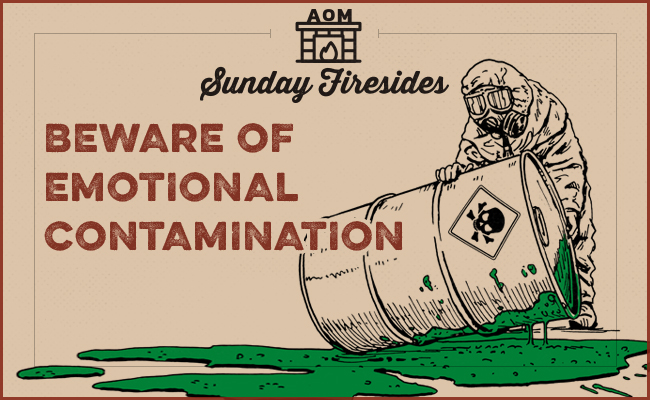If life came with warning labels, one should read: “Beware of emotional contamination.â€
Emotional contamination occurs when the feelings/mood that were created from one event “pollute†another.
You think you don’t like the tone in which your wife asks you a question . . . when really you’re peeved from a bad day at work. You feel like you’re irritated by your kid’s too-loud hijinks . . . when really you’re still stewing from being snubbed on social media. You decide a certain job opportunity doesn’t look so promising after all . . . when really you’re feeling embarrassed by how awkwardly you interviewed for it.
Emotional contamination also emerges out of “positive†triggers too: You happen to tour a college campus on a sunny, perfectly beautiful day . . . and not-so-coincidentally feel euphoric about the idea of your going to school there. You’re riding high from winning over a new client . . . and suddenly decide maybe third time’s the charm in asking out the secretary in HR.
Emotional contamination can cause you to make poor decisions, as you don’t realize that your feelings towards one thing have actually leaked over from another. You feel sure you’re angry about X, when you’re really angry about Y, and instead of addressing the latter, you take your ire out on the former – who is befuddled by your disproportionate sensitivity. Or you think something is the right choice, when really your internal barometer has been swayed by the weather.
Certainly, in our own relationship, when one of our reactions seems unreasonable, given the actual circumstances, it’s been helpful to ask, “Are you suffering from emotional contamination here?†Usually the other person is initially defensive, and sure they’re indeed reacting to the trigger at hand. But then later, with some reflection, they admit, “Oh, I’m sorry, I should have read the label.â€



